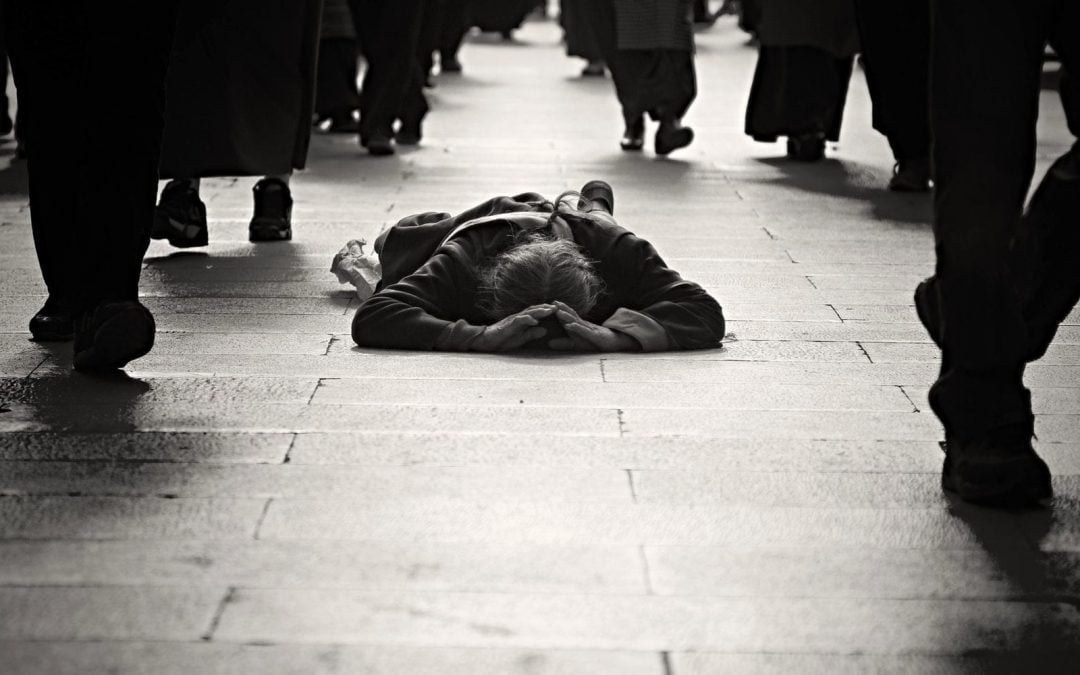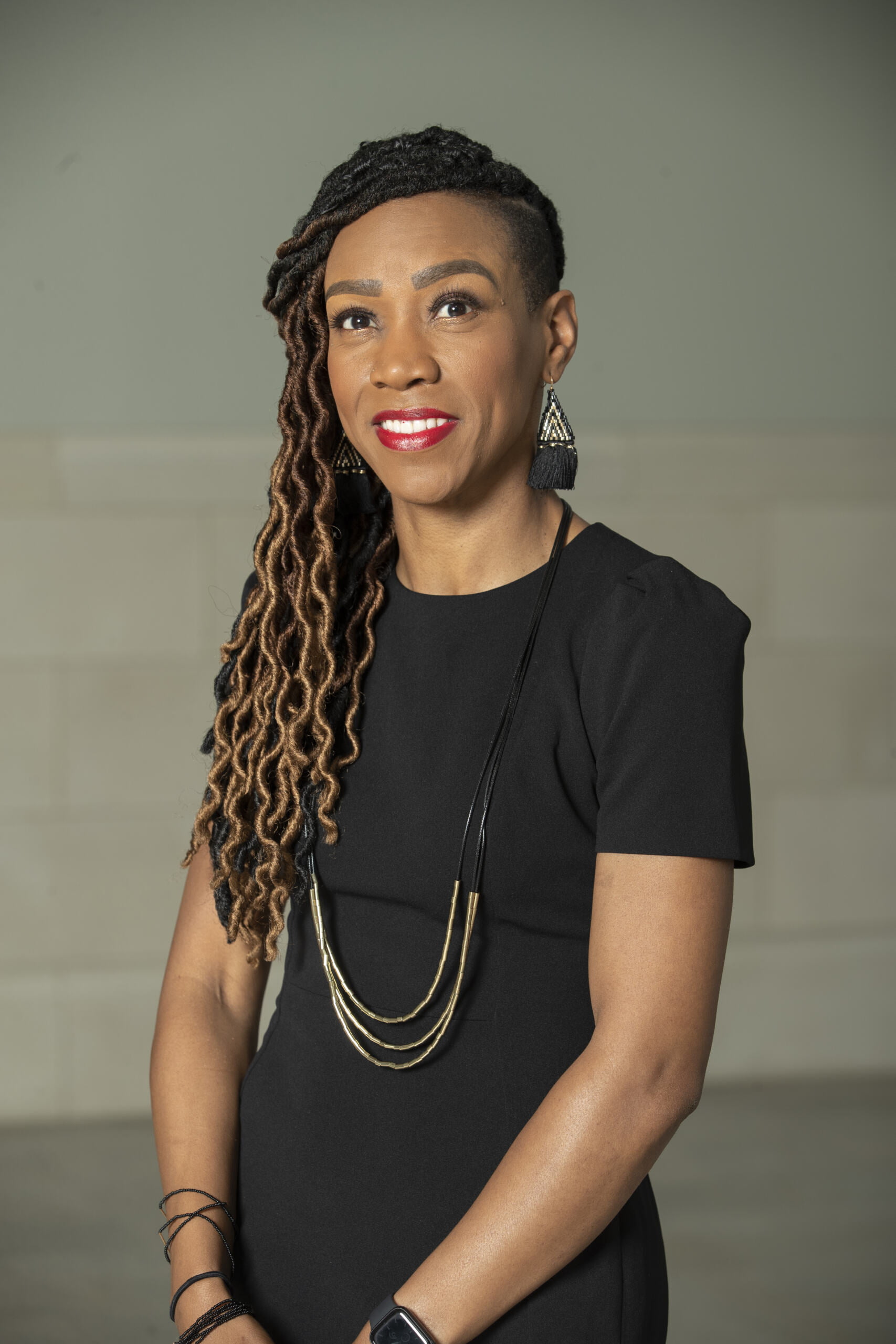Writer James Baldwin says rightly, “The effort not to know what one knows is the most corrupting effort one can make.”
Still, the North American church is so empire-minded that it is of no earthly good. Left behind by a generation or two, the North American church remains in the community but is often not found protesting in the streets when blood cries from the ground after routine traffic stops by police turn deadly.
National attention is given to African American men and women who die while being questioned, detained, arrested or otherwise in police custody as the North American church looks out of stained-glass windows.
Millennials sing, “Were you there when they shot him in the street?”
Kelly Brown Douglas in her book, “Stand Your Ground: Black Bodies and the Justice of God,” draws a comparison between Jesus and Trayvon Martin, a 17-year-old African American teen who was killed while walking home from a convenience store by a self-described “neighborhood watch captain.”
In a chapter titled “Jesus in the Face of Trayvon,” she writes, “Both Jesus and Trayvon were members of a despised minority. Both were feared because of who they were. Both stood ‘beyond the reach of citizen security.’ Both offended the ‘lords of the land.’ Both were accused of sedition. Both were killed by the rule of ‘law and order.’ Both were victimized by a culture of lynching. Both were found guilty of their own deaths. Both deaths would shake a nation. Both deaths would say something about God.”
She continues, “That Jesus was crucified affirms his absolute identification with the Trayvons, the Jordans, the Renishas, the Jonathans and all other victims of the stand-your-ground-culture war. Jesus’ identification with the lynched/crucified class is not accidental. It is intentional. It did not begin with his death on the cross. In fact, that Jesus was crucified signals his prior bond with ‘the crucified class.’”
Despite Jesus’ witness in life and in death and unlike the witness of leaders and supporters of the civil rights movement of the 1950s and ’60s, today’s clergy and laypersons are often left out of conversations, planning meetings and participation in the movement toward social justice and equality.
This is most evident in their awkward absence within the Black Lives Matter movement, for example.
Clergy are no longer at the helm of social justice movements and are viewed as unnecessary for social change.
The MeToo movement, its founder neither a man nor a clergyperson, was launched by Tarana Burke to amplify the voices of those victimized by sexual predators.
She challenges the culture of silence around sexual predation, sexual harassment, sexual intimidation and rape.
With allegations and litigations over decades of molestation and rape, both the Catholic and Protestant church in North America are unable to serve as prophetic representation for this movement.
Pastors, preachers and other faith leaders are no longer leading the charge, marching arm in arm on the front lines with community members. Because this generation of leaders doesn’t take their lead from the pulpit or need one to give voice to their message.
Instead, they are organizing around issues that matter to them and using their social media platforms.
These young adults are not waiting for faith leaders, who were often considered the obvious choice when desiring the voice of moral authority. They simply don’t have time.
Michael Harriot reports in The Root that “1,165 people were shot in 2018 and that there were only 22 days wherein a shooting did not occur.”
“Despite all the protests, marches, training seminars, thoughts and prayers, in 2018, cops killed 36 more people than they did the year before, according to Mapping Police Violence and the Washington Post,” he writes.
These are urgent matters of life and death. Consequently, we cannot move at the pace of committee meetings or Sunday morning worship.
They chant, “What do we want? Justice! When do we want it? Now!”
Perhaps it takes a village to raise the consciousness of a society and not the chief. And for these young adults, it doesn’t take a church.
Historically deemed safe space, the so-called black church is no longer reserved for planning and organizing, training and empowerment.
Instead, an unchurched generation is finding their faith outside the church in North America and claiming its spiritual practice every day of the week – not solely on Sundays at 11 a.m., though this may only be true for the older millennials.
In the case of younger millennials, the Pew Research Center found that 28 percent attend once a week, 38 percent attend once or twice a week and 34 percent attend religious service seldom or never.
From the social gospel of the 19th century to today’s prosperity gospel, the North American church is thought to be shortchanging society.
Dictionary.com defines the prosperity gospel as “a modern version or according to some, perversion of the gospel according to which the full blessings of God available to those who approach (God) in faith and obedience include wealth, health and power.”
The prosperity gospel seeks to capitalize on the Christian message. With megachurches, supersized faith and strip-mall kingdoms, the emphasis is turned inward and the focus on accumulation.
It omits the cost of discipleship, namely suffering with Christ. Instead, the kingdom of God is stamped “Made in America.”
The church in North America is experiencing a decline in prophetic witness, social engagement and neighboring presence as it relates to the sociopolitical construct of race and specifically the injustices suffered by bodies not favored by this “pigmentocracy.”
“Stay woke” is a generational response to a sleepy-headed North American church they perceive is not vigilant, not aware of and frankly not interested in what is happening in their communities.
But being woke is not limited to race but addresses the social ills and historical illusions of classism and sexism.
Christ-consciousness is necessary for authentic being, advocacy and the advancement of the “kin-dom” of God on earth.
Editor’s note: This article is an adaptation of the introduction to Thomas’ paper, “Woke?: Assessing the Consciousness of the Church from North American Eyes” that she presented to the Commission on Racial and Gender Justice at the Baptist World Alliance’s annual meeting on July 7-12, 2019, in Nassau, Bahamas. Footnotes that appear in the original manuscript have been removed. The entire paper is available here.
Director of The Raceless Gospel Initiative, an associate editor, host of the Good Faith Media podcast, “The Raceless Gospel” and author of Take Me to the Water: The Raceless Gospel as Baptismal Pedagogy for a Desegregated Church.


